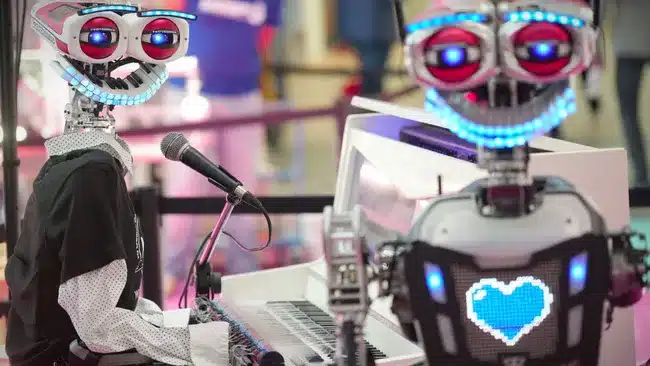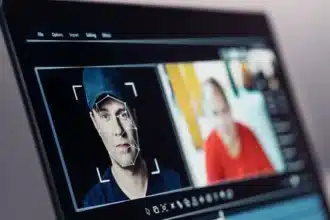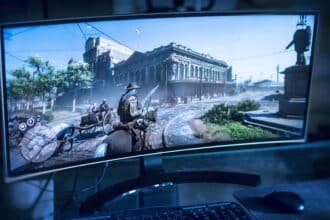YouTube, a platform synonymous with video content, may soon revolutionize the music industry with AI-driven song generators. Reports suggest that YouTube is exploring new AI technologies capable of composing original music, potentially collaborating with music labels to introduce this innovation. This article explores the implications of AI-generated music on artists, listeners, and the music industry as a whole, examining the opportunities and challenges that lie ahead.
The Evolution of AI in Music Creation
Artificial Intelligence has already made significant strides in various creative fields, including music composition. AI algorithms can analyze vast datasets of existing music to generate compositions that mimic specific styles or genres. This capability has sparked interest among tech companies and music enthusiasts alike, as AI continues to blur the line between human creativity and machine intelligence.
YouTube’s Foray into AI Song Generators
YouTube, as one of the largest platforms for music consumption, is exploring AI-driven song generators as a potential feature. This initiative aims to democratize music creation by empowering users, regardless of musical expertise, to generate original compositions. By leveraging AI, YouTube could offer users intuitive tools for composing, remixing, and producing music directly on its platform, revolutionizing how music is created and shared online.
Collaboration with Music Labels
One of the critical aspects of YouTube’s AI song generator project involves collaboration with music labels. Unlike previous AI music experiments, which faced copyright challenges and resistance from industry stakeholders, YouTube’s approach seeks to work in partnership with music labels. This collaboration could pave the way for AI-generated music to coexist alongside traditional compositions, providing new revenue streams for artists and labels while expanding creative possibilities.
Impact on Music Artists and Creators
For music artists and creators, AI song generators represent both opportunities and challenges. On one hand, these tools could democratize access to music creation, enabling aspiring musicians to produce professional-quality tracks without extensive training or expensive equipment. AI-generated music also opens doors for experimentation, allowing artists to explore new genres and styles with ease.
However, there are concerns about the potential homogenization of music if AI-generated compositions dominate mainstream platforms. Critics argue that AI lacks the emotional depth and cultural context that human artists bring to their work, potentially diluting artistic expression and creativity in the long run. Balancing the benefits of AI innovation with preserving artistic integrity remains a critical consideration for the music industry moving forward.
User Experience and Integration
From a user perspective, integrating AI song generators into YouTube could enhance the platform’s appeal as a creative hub. Users could engage with AI tools to compose personalized soundtracks for videos, create background music for podcasts, or simply explore their musical ideas in a collaborative online environment. Seamless integration with YouTube’s existing features would make AI music creation accessible and intuitive, catering to a diverse audience of creators and listeners.
Potential Challenges and Considerations
Despite the promise of AI-driven song generators, several challenges must be addressed for successful implementation:
- Copyright and Licensing: Ensuring that AI-generated music complies with copyright laws and respects intellectual property rights is crucial. Clear licensing agreements with music labels and artists will be essential to avoid legal disputes.
- Quality and Originality: Maintaining the quality and originality of AI-generated music is another concern. While AI can replicate existing styles, creating truly innovative and emotionally resonant compositions remains a complex task.
- Ethical and Cultural Implications: The ethical implications of AI in music creation, including issues of authorship, cultural appropriation, and creative authenticity, require careful consideration. Transparency about AI’s role in music production and its impact on artistic diversity will be essential for fostering trust among creators and listeners.
The Future of AI in Music
Looking ahead, the integration of AI song generators on platforms like YouTube could redefine how music is created, distributed, and consumed globally. As AI technology advances, so too will its capabilities in understanding and generating music that resonates with diverse audiences. Whether as a tool for amateur musicians, a resource for professional artists, or a catalyst for musical innovation, AI-driven song generators are poised to shape the future of the music industry in profound ways.
Conclusion
YouTube’s exploration of AI song generators represents a bold step towards democratizing music creation and innovation. By harnessing the power of AI, YouTube aims to empower users with tools for composing original music effortlessly. However, the introduction of AI-generated music also raises significant questions about artistic authenticity, copyright, and the evolving role of technology in creative industries. As developments unfold, the impact of AI on music creation and consumption will undoubtedly spark discussions, collaborations, and innovations that redefine the boundaries of musical expression in the digital age.
















